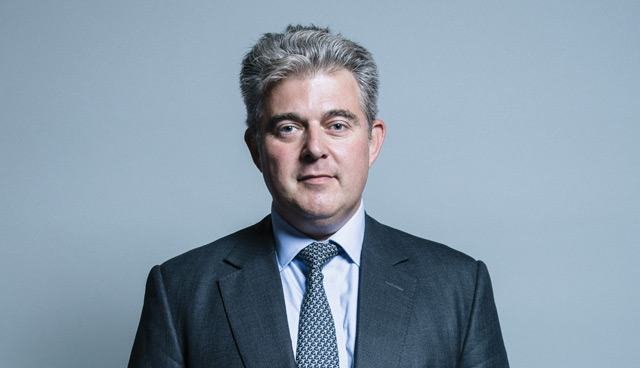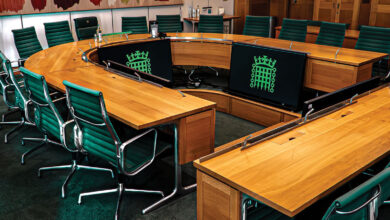Profile: Brandon Lewis

Following the return of the Executive and Assembly after a three-year absence, the last thing expected was for Northern Ireland to have a new Secretary of State. Yet, Boris Johnson used his Cabinet reshuffle to replace Julian Smith with Brandon Lewis, MP for Great Yarmouth, writes Odrán Waldron.
Lewis was appointed to succeed Smith as Secretary of State after the latter had done what neither James Brokenshire nor Karen Bradley could do by successfully brokering negotiations for a return to Stormont. It is thought that these negotiations, specifically a promise to engage in good faith in historical investigations of Troubles killings, is what led to Smith’s deposal. Contrasted to Smith’s stepping out of government line on such investigations, Lewis is considered a safe pair of hands who will not rock the boat within Tory circles.
Since his election in 2010, Lewis has served a multitude of junior Cabinet roles, having been Minister of State for Housing and Planning, for Policing and the Fire Service and for Immigration. During his time as a Minister without Portfolio, he also served as Chairman of the Conservative Party and then moved on to be Minister of State for Security Deputy for EU Exit and No Deal Preparation before taking up his current position.
That experience may stand to Lewis, who will have to find his feet quickly as Northern Ireland begins to settle into the rhythm of life under devolved government for the first time in three years and it remains to be seen how a Londoner who has served the Norfolk constituency of Great Yarmouth will navigate the political makeup of Northern Ireland. To that end, Lewis was spotted leaving the first meeting of the new Cabinet carrying a document entitled A beginner’s guide to the political scene in Northern Ireland.
One of the issues Lewis will have to face is that exact issue which led to Smith’s demise: legacy. The New Decade, New Approach agreement contains a commitment from Westminster to introduce legislation that implements the five-year-old Stormont House Agreement within 100 days. Such a move, which would include an Historical Investigations Unit to investigate Troubles killings, would contradict the Conservatives’ stated goal of ending what they call “vexatious prosecutions” against British Army veterans.
As Northern Ireland also deals with the ongoing Brexit negotiations, it finds itself with a new Secretary of State who campaigned for remain but has fallen in line with government policy since the vote. Lewis has visited the area multiple times as part of his various Cabinet roles and last year told the BBC that there will be no border in the Irish Sea. This position, if Lewis still holds it, now contradicts the Withdrawal Agreement, which is now in force as an international treaty, but is still in line with the public posturing of the Tory Government.
With these two issues, the uncertain nature of the government in the Republic of Ireland, the COVID-19 pandemic and widespread dissatisfaction across the political spectrum with both the funding received from the New Decade, New Approach agreement and the subsequent budget, Lewis will need to live up to his internal party reputation as a safe pair of hands.





